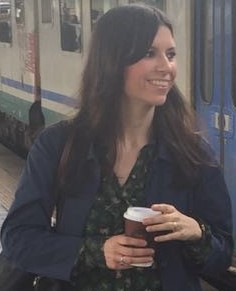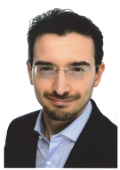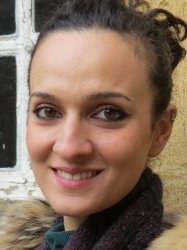Studying at the University of Verona
Here you can find information on the organisational aspects of the Programme, lecture timetables, learning activities and useful contact details for your time at the University, from enrolment to graduation.
Academic calendar
The academic calendar shows the deadlines and scheduled events that are relevant to students, teaching and technical-administrative staff of the University. Public holidays and University closures are also indicated. The academic year normally begins on 1 October each year and ends on 30 September of the following year.
Course calendar
The Academic Calendar sets out the degree programme lecture and exam timetables, as well as the relevant university closure dates..
| Period | From | To |
|---|---|---|
| primo semestre (lauree magistrali) | Oct 4, 2021 | Dec 17, 2021 |
| secondo semestre (lauree magistrali) | Feb 21, 2022 | May 13, 2022 |
| Session | From | To |
|---|---|---|
| sessione invernale | Jan 10, 2022 | Feb 18, 2022 |
| sessione estiva | May 23, 2022 | Jul 8, 2022 |
| sessione autunnale | Aug 22, 2022 | Sep 23, 2022 |
| Session | From | To |
|---|---|---|
| sessione autunnale (validità a.a. 2020/2021) | Dec 6, 2021 | Dec 10, 2021 |
| sessione invernale (validità a.a. 2020/2021) | Apr 6, 2022 | Apr 8, 2022 |
| sessione estiva (validità a.a. 2021/2022) | Sep 5, 2022 | Sep 6, 2022 |
Exam calendar
Exam dates and rounds are managed by the relevant Economics Teaching and Student Services Unit.
To view all the exam sessions available, please use the Exam dashboard on ESSE3.
If you forgot your login details or have problems logging in, please contact the relevant IT HelpDesk, or check the login details recovery web page.
Should you have any doubts or questions, please check the Enrollment FAQs
Academic staff
 laura.chiaramonte@univr.it
laura.chiaramonte@univr.it
 mauro.cortese@univr.it
mauro.cortese@univr.it
 cecilia.mancini@univr.it
cecilia.mancini@univr.it

Santi Flavio
 flavio.santi@univr.it
flavio.santi@univr.it
 045 802 8239
045 802 8239

Vannucci Virginia
 virginia.vannucci@univr.it
virginia.vannucci@univr.it
Study Plan
The Study Plan includes all modules, teaching and learning activities that each student will need to undertake during their time at the University.
Please select your Study Plan based on your enrollment year.
1° Year
| Modules | Credits | TAF | SSD |
|---|
2° Year activated in the A.Y. 2022/2023
| Modules | Credits | TAF | SSD |
|---|
| Modules | Credits | TAF | SSD |
|---|
| Modules | Credits | TAF | SSD |
|---|
| Modules | Credits | TAF | SSD |
|---|
Legend | Type of training activity (TTA)
TAF (Type of Educational Activity) All courses and activities are classified into different types of educational activities, indicated by a letter.
Stochastic Models for Finance (2021/2022)
Teaching code
4S02482
Teacher
Coordinator
Credits
9
Language
Italian
Scientific Disciplinary Sector (SSD)
SECS-S/01 - STATISTICS
Period
primo semestre (lauree magistrali) dal Oct 4, 2021 al Dec 17, 2021.
Learning outcomes
The course provides to students in economics and finance an overview of the theory of probability at an intermediate level. Prerequisite to the course is an elementary knowledge of probability at the level of an undergraduate first or second year introductory course in probability and statistics. In particular, a basic knowledge of the following topics is recommended: most common univariate discrete and continuous distributions; weak law of large numbers; central limit theorem. The final objective of the course is to give an introduction to the advanced theory of conditional expectation, of stochastic processes in the discrete and continuous time domains and to stochastic integration.
Program
• Probability spaces and Kolmogorov’s axioms: sigma-algebras; event trees; elementary conditional probability; Bayes theorem; independence.
• Random variables: discrete, absolutely continuous and singular random variables; expectation; Chebyshev inequality; Jensen inequality; moment generating function.
• Multidimensional random variables: multidimensional discrete and continuous random variables; joint distribution function; joint density function; marginal and conditional distributions; marginal and conditional densities; independence; covariance; coefficient of correlation of Bravais; Cauchy-Schwarz inequality; joint moment generating function.
• Distributions of functions of random variables: transformations of random variables; method of the distribution function; distribution of the minimum and the maximum; method of the moment generating function; log-normal distribution; probability integral transform; transformations of vectors of random variables.
• Limits of random variables: infinite series of random variables; convergence in probability, in distribution, with probability one (almost surely) and in mean; weak law of large numbers and law of large numbers of Bernoulli for relative frequencies; central limit theorem; Borel’s lemma and Borel’s strong law of large numbers; order statistics; empirical distribution function.
• Conditional expectation: conditional probability and conditional expectation with respect to a finite partition; conditional expectation with respect to a sigma-algebra.
• Discrete time martingales: filtrations; martingales on finite probability spaces; martingales and stopping times; betting strategies and impossibility of a winning betting strategy.
• Continuous time stochastic processes: definitions and finite-dimensional distributions; filtrations; adapted processes; filtrations generated by a stochastic process; stationary processes; processes with stationary increments and with independent increments; counting processes and Poisson processes; Gaussian processes and Wiener processes (Brownian motions); Wiener process as a limit of a random walk; properties and irregularities of the sample trajectories (non derivability and infinite variation); Markov processes, transition probabilities and Chapman-Kolmogorov equations; continuous time martingales.
• Stochastic integrals: overview of Riemann-Stiltjes integral; definition and properties of Itô’s integral; Itô’s formula, properties and applications; martingales associated to a Wiener process; diffusions; geometric Brownian motion; Radom-Nikodym derivative; Girsanov's theorem.
SUPPORTING MATERIAL
In addition to the textbooks and the books in the reading list, other supporting material like written records of the lessons, handouts, exercises and past exam papers with solutions will be distributed during the course and will be made available on the E-learning platform of the University. Detailed indications, regarding the use of the textbooks, will be given during the course.
TEACHING METHODS
Students are supposed to have acquired all notions and basic concepts usually taught in a first undergraduate university course in probability and statistics: main discrete and continuous univariate distributions, main limit theorems such as the weak law of large numbers and the central limit theorem.
Course load is equal to 54 hours (equal to 9 ECTS). Exercises are an integral part of the course and, together with the classes, they are essential to a proper understanding of the topics of the course. The working language is Italian. In addition to lessons and exercise hours, there will be tutoring hours devoted to revision. More detailed information will be available in due course.
Due to the COVID-19 health emergency, the way lessons will be delivered might change during the course of the semester. In any case, distance learning will always be guaranteed so that all face-to-face lessons will be recorded and made available for later viewing.
Bibliography
Examination Methods
The final exam consists of a written test (lasting about 2 hours and 30 minutes) made up of a selection of exercises. For the written test, the Moodle's QUIZ tool might be used. During the exam, only a calculator can be used and no other material (books, notes, etc.) will be allowed. The written test will be followed by an oral test (compulsory), which can only be accessed by students who have obtained at least a pass in the written test. To take the tests, students must present themselves with a university card or a suitable identification document.
For the 2021/2022 academic year, it is likely that students will have the possibility to request (according to the rules established by the Rector) a remote examination, on the basis of problems directly connected to the COVID-19 heath emergency. Regardless of the modality (face-to-face or remote), the exam will be calibrated to guarantee the same level of difficulty. Finally, we remind that, as far as the examination methods are concerned, there are no differences according to the number of lessons attended.
Type D and Type F activities
Nei piani didattici di ciascun Corso di studio è previsto l’obbligo di conseguire un certo numero di crediti formativi mediante attività a scelta (chiamate anche "di tipologia D e F").
Oltre che in insegnamenti previsti nei piani didattici di altri corsi di studio e in certificazioni linguistiche o informatiche secondo quanto specificato nei regolamenti di ciascun corso, tali attività possono consistere anche in iniziative extracurriculari di contenuto vario, quali ad esempio la partecipazione a un seminario o a un ciclo di seminari, la frequenza di laboratori didattici, lo svolgimento di project work, stage aggiuntivo, eccetera.
Come per ogni altra attività a scelta, è necessario che anche queste non costituiscano un duplicato di conoscenze e competenze già acquisite dallo studente.
Quelle elencate in questa pagina sono le iniziative extracurriculari che sono state approvate dal Consiglio della Scuola di Economia e Management e quindi consentono a chi vi partecipa l'acquisizione dei CFU specificati, alle condizioni riportate nelle pagine di dettaglio di ciascuna iniziativa.
Si ricorda in proposito che:
- tutte queste iniziative richiedono, per l'acquisizione dei relativi CFU, il superamento di una prova di verifica delle competenze acquisite, secondo le indicazioni contenute nella sezione "Modalità d'esame" della singola attività;
- lo studente è tenuto a inserire nel proprio piano degli studi l'attività prescelta e a iscriversi all'appello appositamente creato per la verbalizzazione, la cui data viene stabilita dal docente di riferimento e pubblicata nella sezione "Modalità d'esame" della singola attività.
COMPETENZE TRASVERSALI
Scopri i percorsi formativi promossi dal Teaching and learning centre dell'Ateneo, destinati agli studenti iscritti ai corsi di laurea, volti alla promozione delle competenze trasversali: https://talc.univr.it/it/competenze-trasversali
ATTENZIONE: Per essere ammessi a sostenere una qualsiasi attività didattica, inlcuse quelle a scelta, è necessario essere iscritti all'anno di corso in cui essa viene offerta. Si raccomanda, pertanto, ai laureandi delle sessioni di dicembre e aprile di NON svolgere attività extracurriculari del nuovo anno accademico, cui loro non risultano iscritti, essendo tali sessioni di laurea con validità riferita all'anno accademico precedente. Quindi, per attività svolte in un anno accademico cui non si è iscritti, non si potrà dar luogo a riconoscimento di CFU.
| years | Modules | TAF | Teacher |
|---|---|---|---|
| 1° 2° | The fashion lab (1 ECTS) | D |
Caterina Fratea
(Coordinator)
|
| 1° 2° | The fashion lab (2 ECTS) | D |
Caterina Fratea
(Coordinator)
|
| 1° 2° | The fashion lab (3 ECTS) | D |
Caterina Fratea
(Coordinator)
|
| years | Modules | TAF | Teacher |
|---|---|---|---|
| 1° 2° | Marketing plan | D |
Virginia Vannucci
(Coordinator)
|
| years | Modules | TAF | Teacher |
|---|---|---|---|
| 1° 2° | Internationalization and Sustainability. Friends or Enemies? | D |
Angelo Zago
(Coordinator)
|
| 1° 2° | Internationalization and Sustainability. Friends or Enemies? | D |
Angelo Zago
(Coordinator)
|
| 1° 2° | Internationalization and Sustainability. Friends or Enemies? | D |
Angelo Zago
(Coordinator)
|
| 1° 2° | Data Analysis Laboratory with R (Verona) | D |
Marco Minozzo
(Coordinator)
|
| 1° 2° | Data Visualization Laboratory | D |
Marco Minozzo
(Coordinator)
|
| 1° 2° | Python Laboratory | D |
Marco Minozzo
(Coordinator)
|
| 1° 2° | Advanced Excel Laboratory (Verona) | D |
Marco Minozzo
(Coordinator)
|
| 1° 2° | Excel Laboratory (Verona) | D |
Marco Minozzo
(Coordinator)
|
| 1° 2° | Samsung Innovation Camp | D |
Marco Minozzo
(Coordinator)
|
| years | Modules | TAF | Teacher |
|---|---|---|---|
| 1° 2° | Business & Predictive Analytics for International Firms (with Excel Applications) - 2021/2022 | D |
Angelo Zago
(Coordinator)
|
| 1° 2° | What paradigms beyond the pandemic? Individual vs. Society, Private vs. Public | D |
Federico Brunetti
(Coordinator)
|
| 1° 2° | Elements of Financial Risk Management - 2021/2022 | D |
Claudio Zoli
(Coordinator)
|
| 1° 2° | Integrated Financial Planning | D |
Riccardo Stacchezzini
(Coordinator)
|
| years | Modules | TAF | Teacher |
|---|---|---|---|
| 1° 2° | The fashion lab (1 ECTS) | D |
Caterina Fratea
(Coordinator)
|
| 1° 2° | The fashion lab (2 ECTS) | D |
Caterina Fratea
(Coordinator)
|
| 1° 2° | The fashion lab (3 ECTS) | D |
Caterina Fratea
(Coordinator)
|
| years | Modules | TAF | Teacher |
|---|---|---|---|
| 1° 2° | La metodologia SEM applicata allo studio della relazione tra gestione del rischio e performance nelle PMI | D |
Cristina Florio
(Coordinator)
|
| 1° 2° | Laboratory on research methods for business | D |
Cristina Florio
(Coordinator)
|
| 1° 2° | Machine learning and quantum computing with some applications in mathematical finance | D |
Alessandro Gnoatto
(Coordinator)
|
| years | Modules | TAF | Teacher | |
|---|---|---|---|---|
| 1° | Programming in Matlab | D |
Marco Minozzo
(Coordinator)
|
|
| 1° 2° | How to Enter in a Foreign Market. Theory and Applications - 2021/2022 | D |
Angelo Zago
(Coordinator)
|
|
| 1° 2° | Introduction to Java programming | D |
Alessandro Gnoatto
(Coordinator)
|
|
| 1° 2° | Data Science Laboratory with SAP | D |
Marco Minozzo
(Coordinator)
|
|
| 1° 2° | Programming in SAS | D |
Marco Minozzo
(Coordinator)
|
|
Career prospects
Module/Programme news
News for students
There you will find information, resources and services useful during your time at the University (Student’s exam record, your study plan on ESSE3, Distance Learning courses, university email account, office forms, administrative procedures, etc.). You can log into MyUnivr with your GIA login details: only in this way will you be able to receive notification of all the notices from your teachers and your secretariat via email and soon also via the Univr app.
Graduation
List of theses and work experience proposals
| theses proposals | Research area |
|---|---|
| Tesi di laurea magistrale - Tecniche e problemi aperti nel credit scoring | Statistics - Foundational and philosophical topics |
| Fattori ESG e valutazione d'azienda | Various topics |
| Il metodo Monte Carlo per la valutazione di opzioni americane | Various topics |
| Il Minimum Requirement for own funds and Eligible Liabilities (MREL) | Various topics |
| L'acquisto di azioni proprie | Various topics |
| Proposte Tesi A. Gnoatto | Various topics |






















